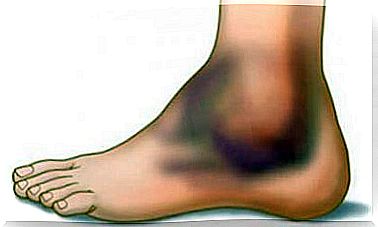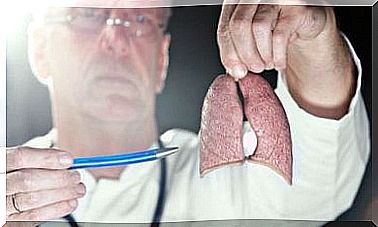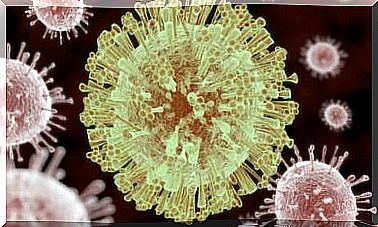How To Cure A Cold At Home
The common cold can cause very bothersome symptoms, such as nasal congestion or a fatty cough. It can nevertheless be calmed with some basic care. We detail them in this article.

In most cases, it is possible to cure a cold at home. This disease can affect anyone and usually does not cause major complications. Its symptoms are nevertheless bothersome and may be the reason for an absence from work or school.
Symptoms such as nasal congestion, sneezing, and coughing create a general feeling of discomfort that prevents you from performing daily tasks. Fortunately, with some personal care measures, he gets better in no time. Discover some recommendations now.
What is the common cold?
The common cold is a viral infection that affects the respiratory tract. It can be caused by many different types of viruses. In fact, it is estimated that there are around 200 types of related viruses, such as rhinoviruses, adenoviruses or others.
Throughout history, attempts have been made to identify which factors help to develop this pathology. We have seen, for example, that it was more frequent during childhood, in stressful situations or in places where a dry and cold environment prevails.
Usually, symptoms appear two to three days after exposure to the virus. They include:
- Nasal congestion
- Sneezing
- General malaise
- Low fever (only in some cases)
- Cough and sore throat
- Headache
The mucus becomes thicker and thicker as the pathology progresses. However, the symptoms improve on their own within a few days. Despite this, it is still necessary to put into practice some tips to support it and reduce the risk of complications.
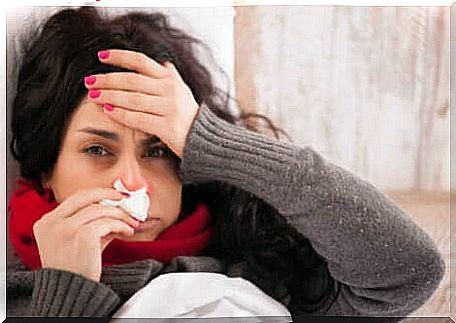
Tips for treating a cold at home
If there are no signs of complications from a cold episode, you just need to put into practice a few simple tips to endure the symptoms. This, along with good rest, will lead to a feeling of improvement in a very short time.
Consume healthy fluids and water
Maintaining proper hydration is one of the basic steps to relieve congestion. When we drink a lot of fluids, the mucus becomes thinner and it is easier to remove it, whether by sneezing or coughing.
It is recommended to drink water and hot infusions. Likewise, soups and broths generally create a comforting sensation. It is best to avoid other substances that promote dehydration, such as alcoholic drinks or drinks with caffeine.
Make a saline solution
Applying a saline solution can help us improve things like nasal congestion and throat irritation. It suffices to dilute a quarter of a spoonful of salt in a glass of lukewarm water. Then we can use the liquid to do a nasal wash or gargle.
Saline solution can also be purchased at the pharmacy, in the form of a spray and nasal drops. These products can also be applied in case of a blocked nose and excess mucus production. In babies, the ideal is to apply several drops of the product in a nasal cavity. Then we vacuum carefully with a rubber bulb.
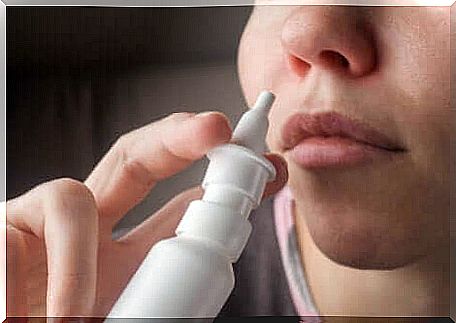
Pay attention to the resting environment
Rest is one of the most important measures in treating a cold. We need to make sure that it is done in an environment free from irritants, like cigarette smoke, dust or chemicals with a strong odor. Being exposed to it would only worsen the symptoms.
We can also install an air humidifier in the room to keep the air humid and warm. In this way, the irritation of the respiratory tract will decrease and the feeling of relief will increase.
What more can we do to cure a cold?
In addition to putting into practice what we have just mentioned, it should be remembered that it is very important to reduce the risk of contagion. So, we have to put our hands in front of our nose and mouth when we cough or sneeze to prevent the particles of our secretions from infecting others. Routine hand washing and avoiding sharing personal use items are other helpful measures.
If there are symptoms such as headache or general malaise, it is recommended to take pain relieving drugs, such as ibuprofen or paracetamol. There are also mucolytic and cough suppressants that help reduce mucus thickness and cough. In any case, to avoid having to take care of yourself, it is best to consult a doctor and follow his recommendations.






